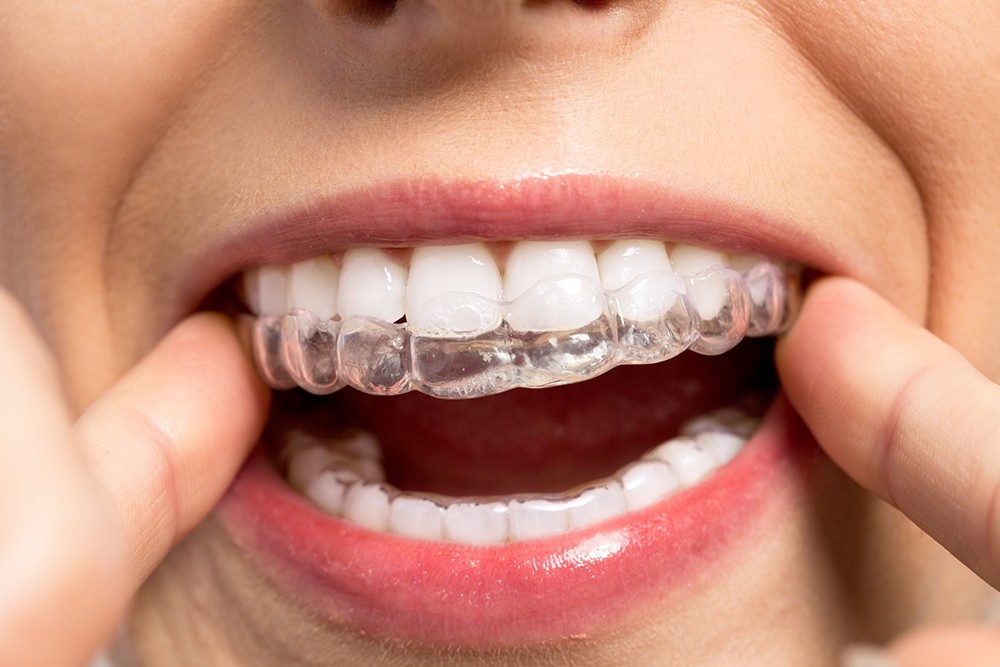Blog
Dental hygiene tips for healthy teeth & gums

Why Isn’t Invisalign Right for Everyone
Invisalign clear aligners have become popular among teenagers and adults alike for avoiding traditional braces. Many people like these aligners for the treatment of dental problems, more specifically, the misaligned bites and several other orthodontic issues. Invisalign has been popular because it is transparent and hence subtle to be worn by people who are shy about wearing metal braces. Aside from this, the Invisalign aligners are going to let users floss, brush, and even eat without removing the aligners. In reality, despite its several advantages, Invisalign isn’t for everyone.
Understanding the Limitations of Invisalign
While Invisalign might be good for most people, there are some limitations to the process. It is crucial to realize the presence of these limitations to decide whether Invisalign can be the right choice for your orthodontic needs.
Invisalign is only indicated in mild to moderate orthodontic problems. It is not designed for more serious dental problems. Traditional braces give better control over the movements of teeth and are therefore more effective in complicated cases. Following are some specific situations where Invisalign might not be in a person’s best interest:
- Severely Rotated Teeth: Invisalign does not work as well on teeth rotated more than 20 degrees from their normal position. This can include molars and lower eyeteeth. These are extremely hard to move with the clear aligners in place.
- Severely Tipped Teeth: When your teeth are tipped more than 45 degrees off of their normal position, you can’t get proper straightening with Invisalign. Traditional braces can handle these severe cases much better.
- Wide Spaces Between Teeth: Invisalign is less indicated when the spacing between teeth is large. If the total space is more than 6mm per arch, traditional braces could be more suitable to ensure proper alignment of teeth.
- Deep Overbites: While slight overbites can easily be treated by Invisalign, deeply seabed overbites may need the efficiency and effectiveness of traditional metal braces.
- Skeletally-Based Malocclusion: In case your dental problems are about the skeletal structure of your jaw, then there is not much that Invisalign can do. You might just end up needing orthodontic treatment using braces, or even surgical procedures. Invisalign cannot treat open bites; however, it can correct minor ones. More serious cases require traditional metal braces.
- Cases needing extractions: If extraction of any tooth/teeth is required because of overcrowding or other reasons, then traditional braces are a better choice as this will provide the desired control for the movement of the remaining teeth in the correct position.
Determining Candidacy for Invisalign
Determining your candidacy for Invisalign requires a comprehensive orthodontist exam. At that point, the orthodontist will assess the severity of your dental issues and can assess whether or not Invisalign is going to be able to effectively take care of them. Following are some factors that may influence your candidacy for Invisalign:
Age
Invisalign is indicated for teenagers and adults looking for bite correction without the use of traditional metal braces. Still, it won’t work for young children. Their dental structure is still growing, and traditional braces provide needed control to guide teeth into their correct positions as they grow.
Dental Health
Your overall dental health is a major determinant of your suitability for Invisalign. People who have good oral hygiene and those with healthy gums usually respond well to Invisalign. The opposite is true for people who have severe pathologies with the teeth and gums, such as active periodontal disease or extensive decay, who may require treatment before orthodontic therapy can be started.
Commitment to Treatment
Invisalign requires much commitment on the part of the patient. The aligners need to be worn for at least 22 hours a day. Those patients who do not have the necessary discipline to wear the aligners regularly may not benefit as they should from this treatment. Unlike the traditional braces, which are fixed, the Invisalign aligners are removable, hence making it easier for patients to skip wearing them.
What Invisalign Can and Cannot Do
Understanding what Invisalign can and cannot do is crucial for making an informed decision about your orthodontic treatment.
What Invisalign Can Do
- Correct Mild to Moderate Misalignments: This is very effective in the correction of mild to moderate dental misalignment conditions like crowding, minor gaps, and minor overbites.
- Better Oral Hygiene: Because the aligners are removable, Invisalign makes it easier for patients to experience better oral hygiene since they can clean their teeth without an obstruction present during brushing and flossing.
- Discreet Treatment: The aligners are nearly invisible, hence very attractive to anyone who may want a very unnoticeable treatment.
- The Smooth Experience: Invisalign aligners are made of smooth plastic, which is much more comfortable than traditional braces, causing abrasions inside one’s mouth.
What Invisalign Cannot Do?
- Severe Rotations and Tipping: As was said before, Invisalign cannot treat severely rotated or tipped teeth.
- Large Gaps: This can be one of the cases where traditional braces are nearly imperative if results are to be optimal.
- Complex Bites: Bites such as severe deep overbites, open bites, and skeletally-based malocclusions, may need treatment using traditional braces or other orthodontic interventions.
- Cases of Tooth Extraction: The cases of extraction—that is, cases where tooth extraction is necessary for proper alignment—are better managed in traditional braces.
Consulting with an Orthodontist
Establish if Invisalign is the way to go through a consultation with an orthodontist. An orthodontist will then go on to check the teeth, gums, and jaw structure in detail at this consultation. He or she may also have X-rays or impressions of your teeth done to come up with an appropriate treatment plan.
He will then recommend the appropriate treatment options for you based on the examination. If he finds you eligible for the Invisalign process, he will describe the whole process to you, letting you know how long the whole treatment process is going to last, what the stages are, and what to expect in each of them.
Conclusion
Of all orthodontic treatments available for teenagers and adults looking to align their smiles discreetly and comfortably, Invisalign is the most popular and highly effective. Not everyone can use it, though. Understanding the limitations of Invisalign and the advice of an orthodontist is important in deciding whether this is the right treatment for you. This way, you can make sure that you are getting the most efficient and correct form of orthodontic care that suits your particular dental needs. If you think maybe Invisalign will do the trick for you, schedule an appointment with a professional orthodontist to discuss your options in finding treatment for your smile.


